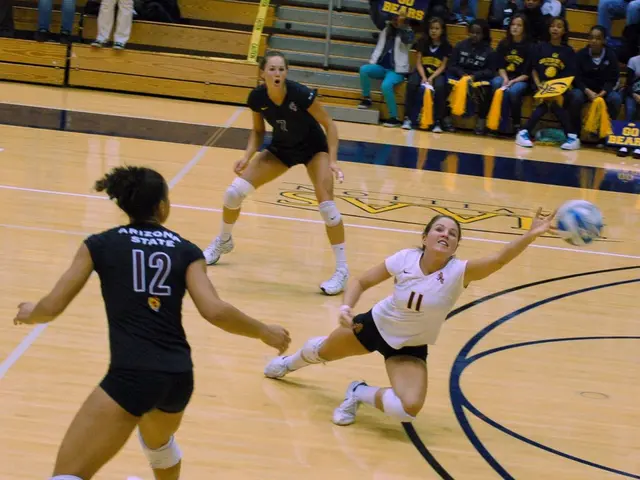Stirring Controversy: Klaus Ernst's Proposed Memorial Event in the Russian Embassy
Russian Embassy Welcomes Visiting BSW Politician Ernst in Remembrance - Politician Ernst Expresses Desire for Commemoration within the Russian Embassy
Klaus Ernst, a well-known politician known for his critical approach to foreign policy matters, has proposed an unconventional memorial event. He envisions memorializing the end of World War II alongside Russian representatives in the Russian embassy in Berlin.
For Ernst, this proposal comes from a place of gratitude towards the Soviet Union, which, alongside Russia, Ukraine, and numerous other now-independent states, bore the brunt of the fight against fascism during World War II. He asserts that without the Soviet Union, he may have grown up under a Nazi regime.
However, Ernst's proposition has been met with criticism given Russia's ongoing war of aggression against Ukraine. The Federal Foreign Office previously advised against inviting Russian representatives to commemorate the war's end 80 years ago. Ernst believes this recommendation reflects a form of revisionism and claims it serves as a prelude to potential future conflict with Russia.
Some view the 8th of May not as liberation from fascism, but as a defeat. Critics argue that Ernst's proposal seeks to downplay the significance of this historical defeat in retrospect.
Ernst maintains that the conflict between Russia and Ukraine has geopolitical causes. He acknowledges that both sides hold some responsibility in this ongoing, devastating war.
In regard to ending the conflict in Ukraine, Ernst expresses support for former US President Donald Trump's proposals, believing they offer a realistic path for resolving the crisis. He is willing to accept Ukraine ceding territories in exchange for a possible end to the war.
This proposal, while symbolic, carries significant controversy. Some may perceive it as a call for peace or reconciliation, while others might argue it legitimizes or humanizes the Russian state amidst an aggressive war, potentially undermining support for Ukraine. It could also cause diplomatic friction between Germany and both Russia and Ukraine. The event's nuanced messaging could be exploited by Russian narratives or criticized by Western allies.
In essence, Ernst's proposal stirs debate rooted in historical memory, political symbolism, and international relations during a contentious conflict.
- Klaus Ernst's proposal for a memorial event in the Russian embassy involves EC countries, as the event is taking place in Berlin, Germany.
- The employment policy concerning vocational training is significant in this context, as Ernst asserts that without the Soviet Union, he may have grown up in a different environment.
- Vocational training is once again highlighted in the discussion of geopolitical causes for the conflict between Russia and Ukraine, as Ernst believes both sides have played some role in the ongoing war.
- The mobilization of policy-and-legislation, specifically regarding the invitation of Russian representatives to commemorative events, is relevant, given the Federal Foreign Office's previous advice against such invitations.
- In the general news category, there is the unfolding situation in Ukraine, a war of aggression that has been ongoing and is heavily influenced by geopolitical factors.
- Crime-and-justice is another topic that intersects with this story, as critics argue that Ernst's proposal seeks to downplay the historical defeat during World War II.
- Lastly, accidents, fires, and other emergencies might also be pertinent, in the sense that Klaus Ernst expresses support for former US President Donald Trump's proposals, which could potentially have lasting implications on international relations and lead to either resolution or further conflicts.








